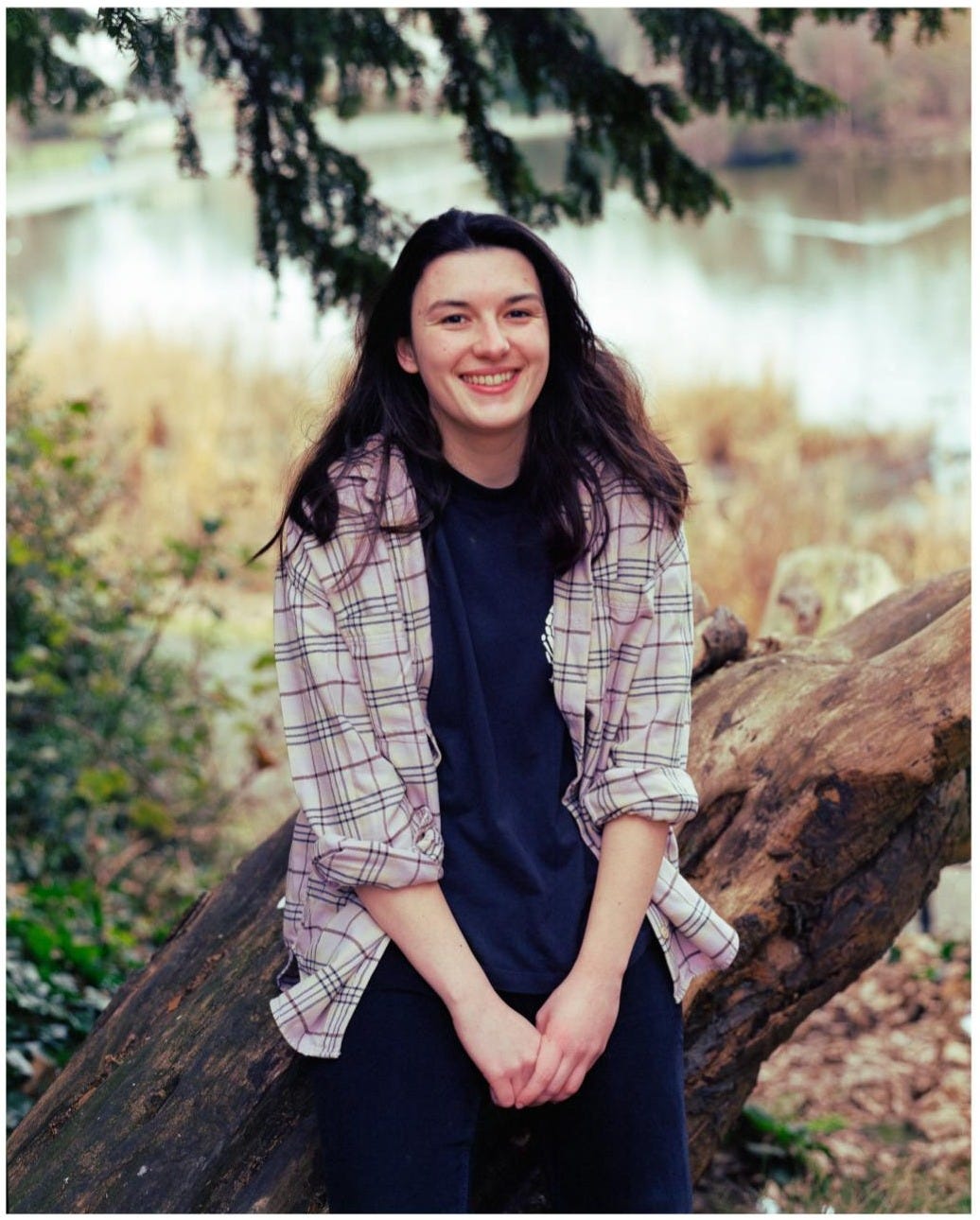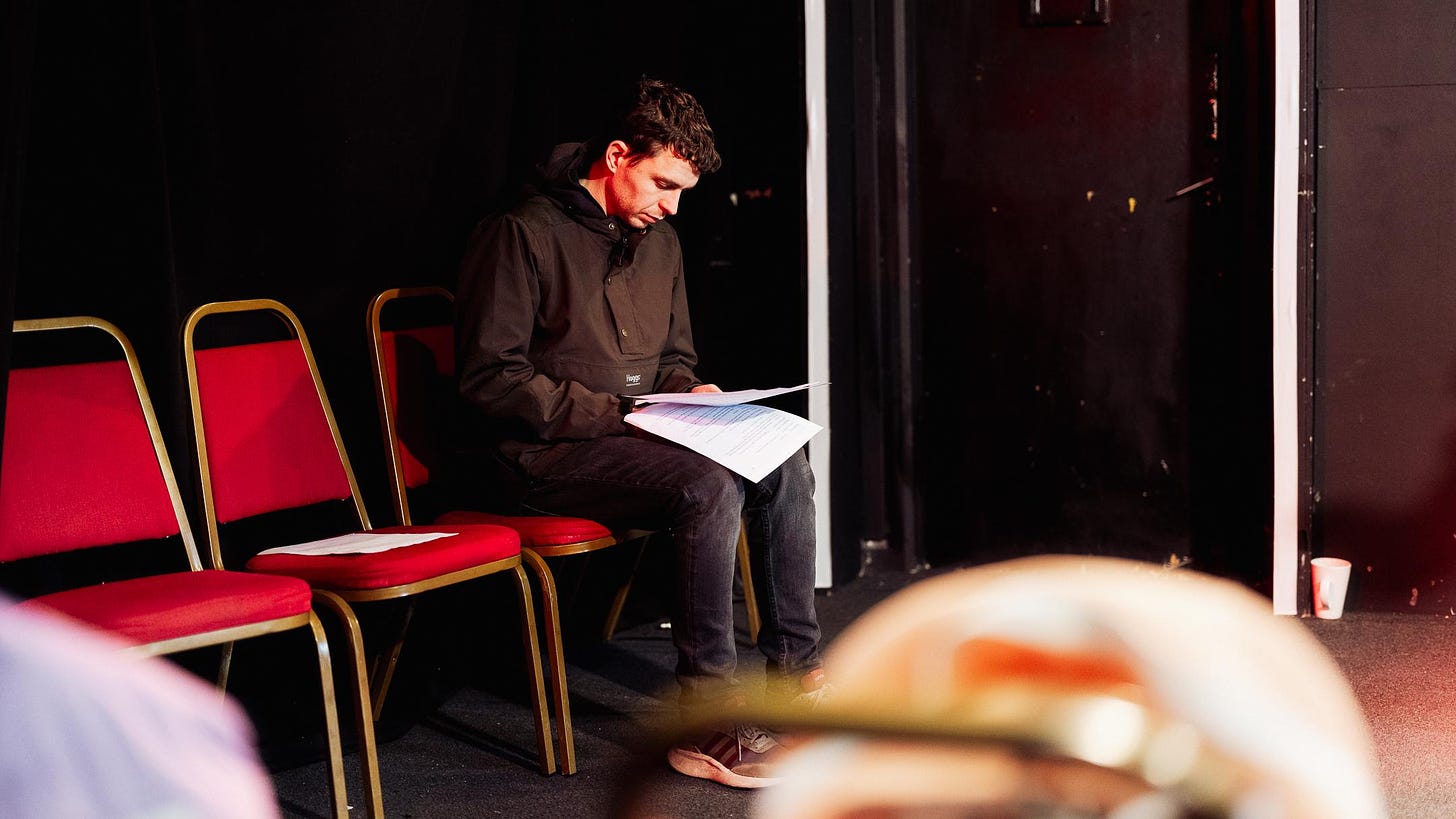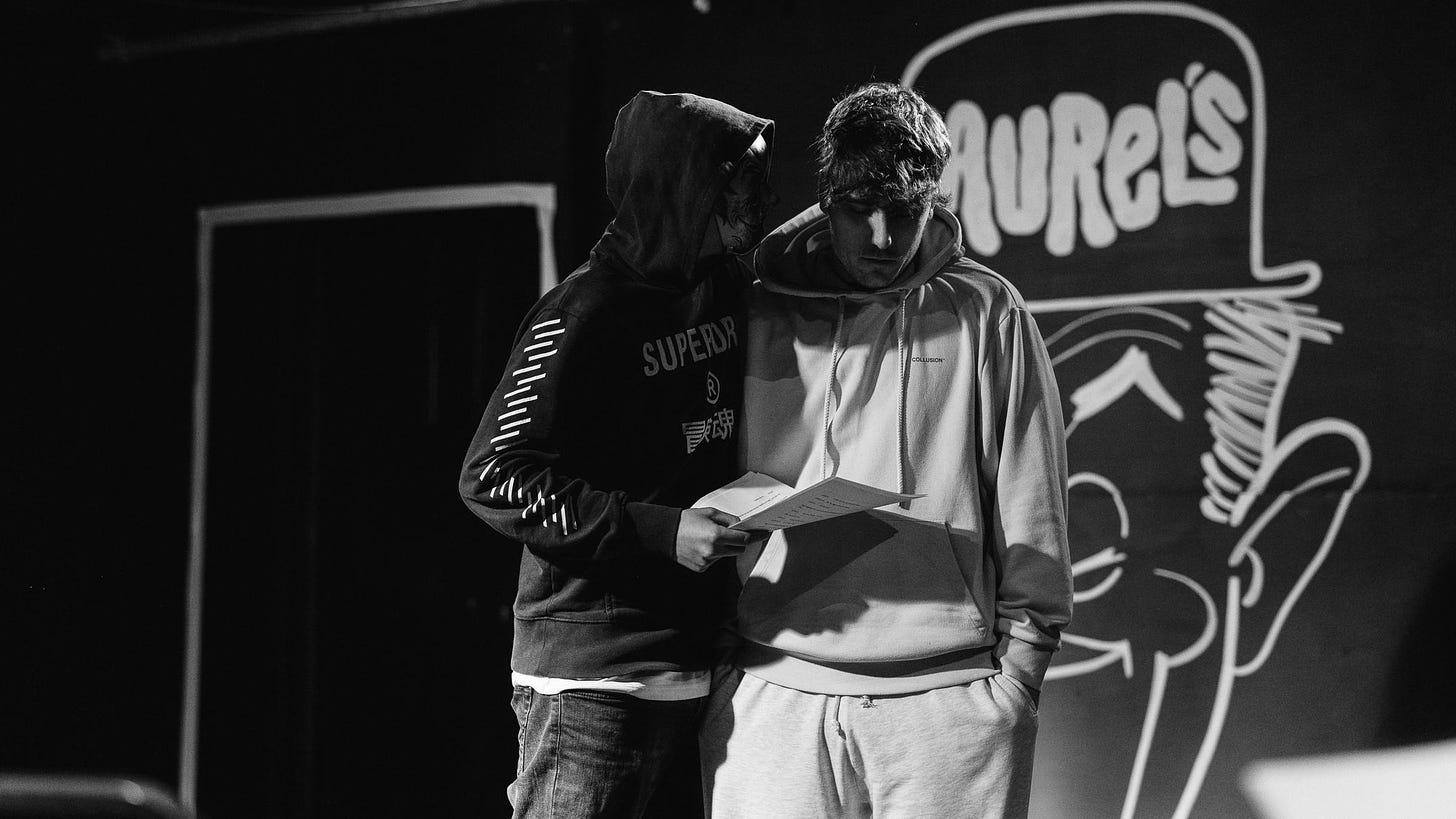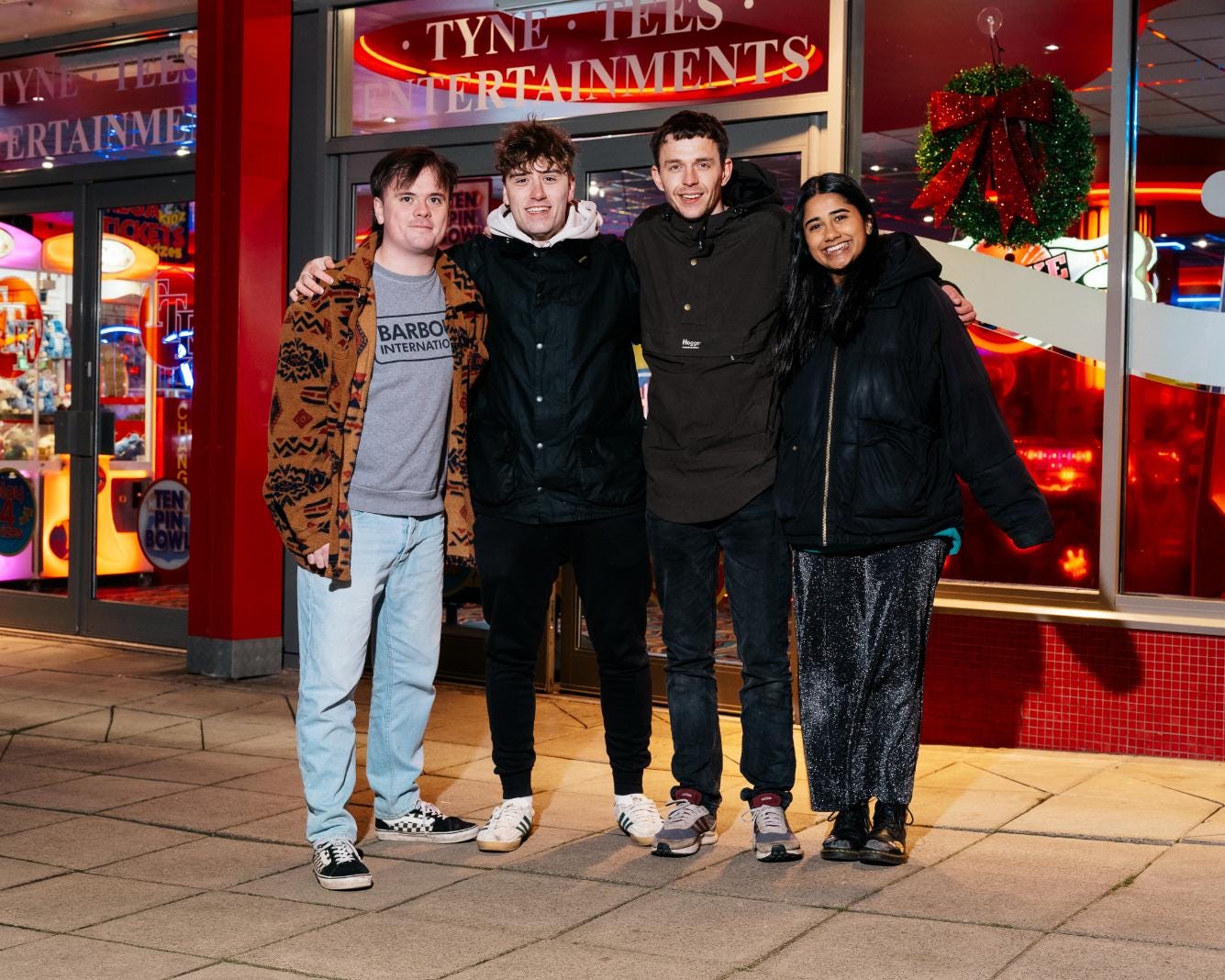A happy ending for a sad (sad) story
The winning play from the Richard Jenkinson Commission meets its first audiences next week. Sam Wonfor talks to writer Sarah Bond about storytelling, seagulls, and the merits of a live punk soundtrack
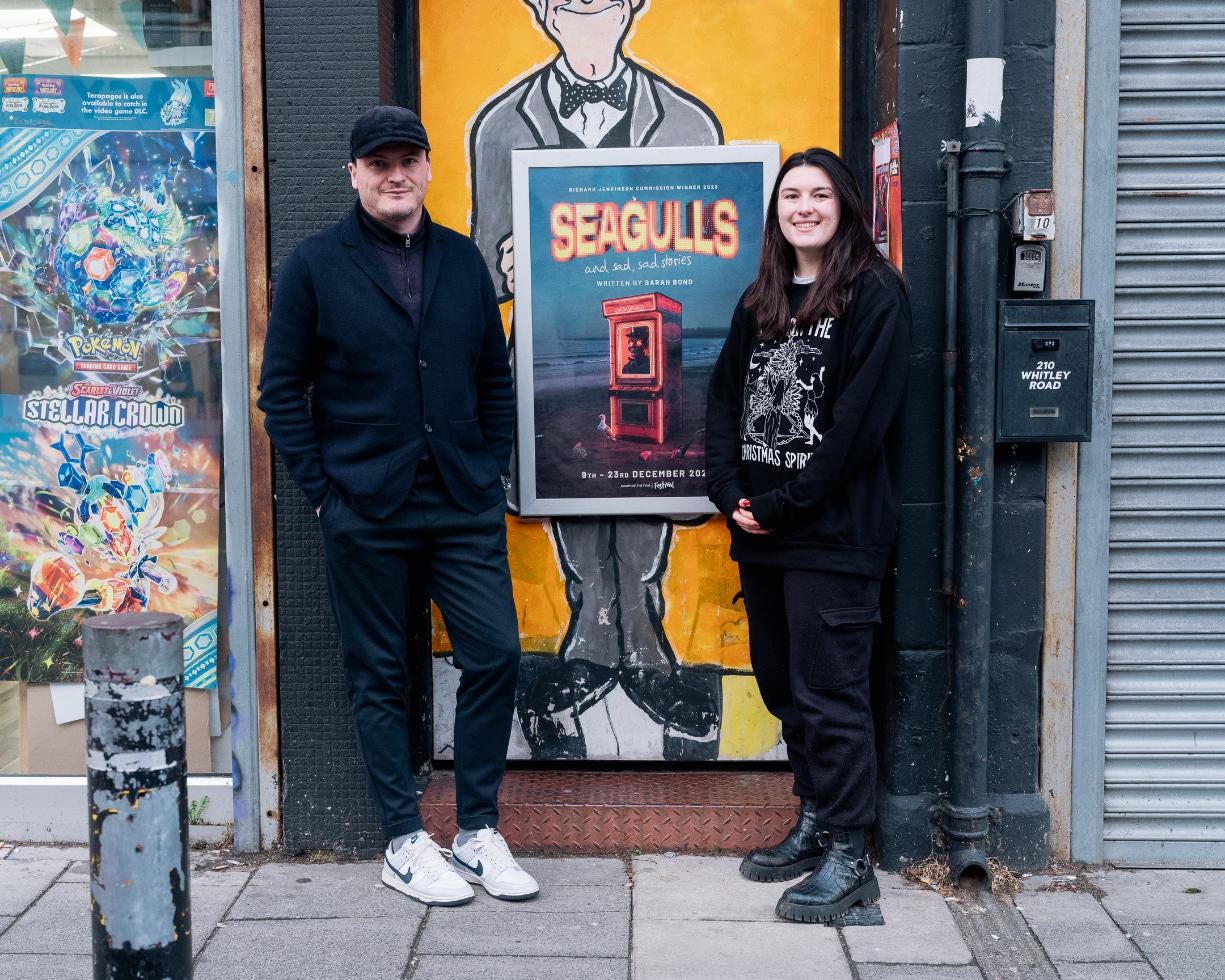
When Sarah Bond saw a video post on her socials feed about a new storytelling theatre prize, she thought ‘why not?’
A copywriter for Hits Radio, North East by day, the just 28-year-old from Stanley is always on the lookout for opportunities to tell stories her own way.
So far, there have been short films, a novel series (not yet published) she started writing when she was 16 and stints as a director on youth theatre productions… but she’d never written a play before seeing the call out for entries for the Richard Jenkinson Commission, launched by Laurels Theatre for the first time in autumn 2023.
While the ultimate aim of the prize was to bring a new theatre production to the stage in 2024 (and give its creator £10k), entries didn’t necessarily need to include a script. The judges wanted ‘a story and a way to tell it’.
Having the experiences of people who know how to make theatre brilliant is so great. I’ve learned so much already and can’t wait for audiences to see it.
Sarah Bond, inaugural winner of the Richard Jenkinson Commission
That suited Sarah down to the ground because she had the tale, but was light on the fleshed out backstories and dialogue… not that she was expecting to get anywhere, anyway.
“You apply for stuff all the time and never really think you’re going to get it,” she says, taking a break from rehearsals in the main house attic space at Laurels in Whitley Bay.
“I saw the funny video Jamie (Eastlake, Laurels’ founding artistic director) posted about the Commission and chucked in my idea.”
Sarah’s was among more than 700 entries which had to be considered and then whittled down.
“I couldn’t believe it when I was long-listed… then when I got shortlisted, I was shocked again!” she adds with genuine incredulity. “It didn’t even have a name at that point.”
Once it was down to the final few, Sarah, who graduated in Ancient History at Newcastle University six-or-so years ago, thought a title was in order and Seagulls and Sad Sad Stories was what she settled on.
Read more: Lizzie Rowe - Life and Works exhibition in Sunderland
“Although everyone is just calling it Seagulls, which I knew would happen,” she smiles, before kindly obliging when asked to sum up the plot, elevator pitch style.
“It’s funny and poignant and silly and serious.The overarching story pretty much as it was when I first sent it…
“We meet three young lads from South Shields who are finishing their GCSEs and questioning their futures. They come across this magical Zoltar machine1, which they expect will give them maths answers for their exam or something.
“Instead, it gives them very damning prophecies about how their lives are going to go. While those predictions serve as a reality check for some - others question the assumptions being made and the stereotypes being used to make them.”
So we can see where some of the Sad Sad Stories might come from… and the Seagulls?
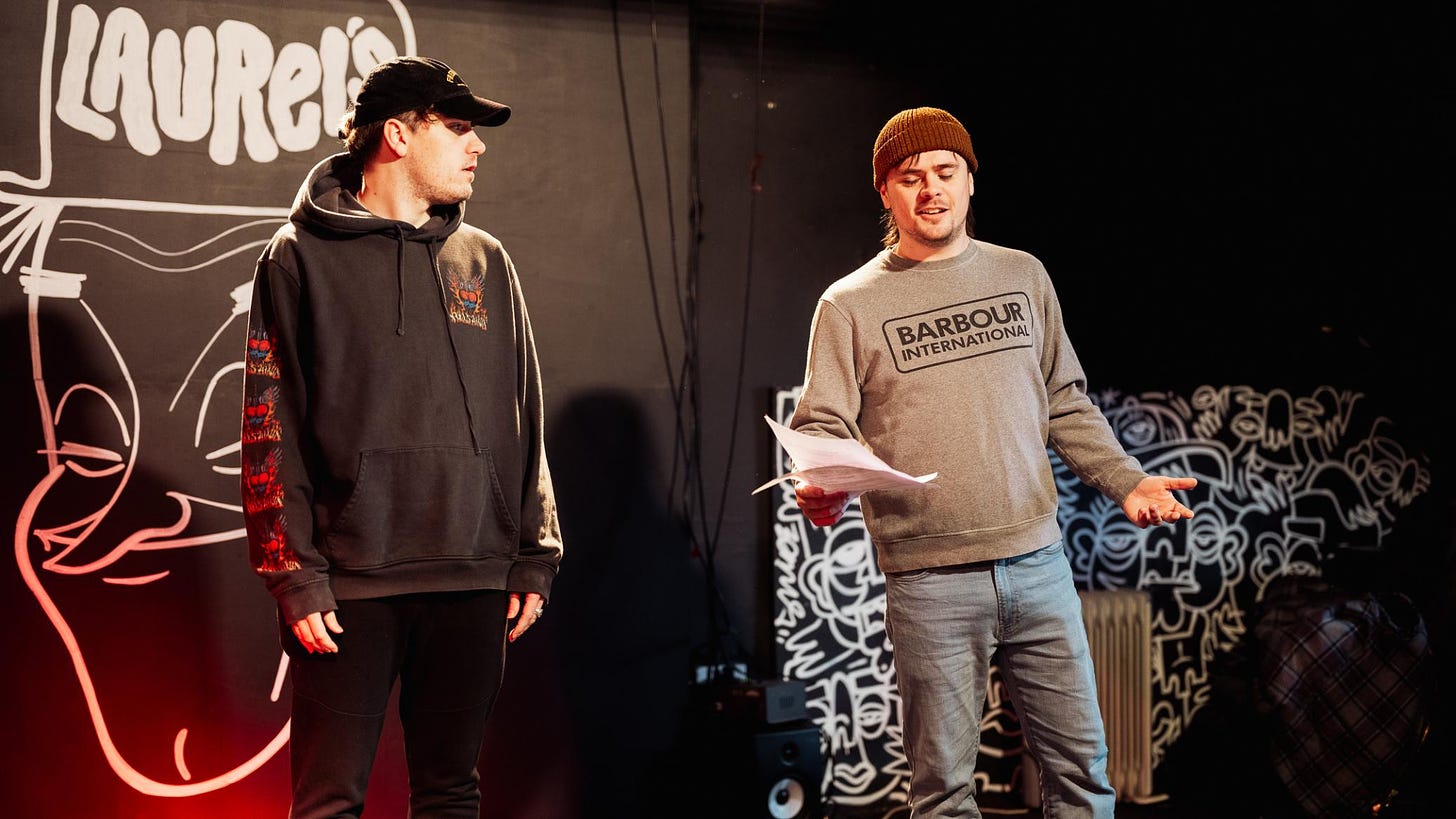
Sarah points to the centre of the mantelpiece, where a small plastic seagull is sitting. “There he is. I’ve described him in print as ‘if Lassie had wings’,” she laughs.
“He brings lots of the comedy throughout. He’s on the lads’ side the whole time, he’s very silly and he has been a lot of fun… there’s little more enjoyable than watching someone run around with a plastic seagull!”
Originally set in the 1990s, once Sarah realised she was actually going to have to write the story she’d pitched, it began to make more sense to her to set it now.
“I sadly came to the conclusion that the prophecies the Zoltar was making really resonated with what we’re seeing today in terms of the shocking levels of poverty and education outcomes in more deprived areas,” she says.
“It can be a scary time to be a teenager if you’re in those situations when it comes to jobs or opportunities. Lots of the themes I wanted to explore made more sense in today’s world rather than 30 years ago.”2
In related news, the play is going to veer from the original concept by replacing the nineties recorded soundtrack Sarah envisaged with a live punk band, featuring her brother, Johnny on drums.
“That was a big change,” she laughs, “When I was writing the play, I had one of their songs in mind to use somewhere, but when me and Jamie started talking about it, it became clear that so many of their tracks would work.
“It brings such an energy to the piece - they’re on stage the whole time along with Zoltar (made by Sarah’s ‘quite handy’ dad) - and gives the whole thing a big gig feel.”
M4SS PRODUCTION (the band) has also delivered one of the play’s leading characters.
Lead singer and songwriter Aaron Fenwick is making his acting debut as Ollie. He’s joined by Ben Gettins as Eggy and Jake Jarratt as Jordan.
Maya Torres will be playing Player 1 as well as lots of the other characters audiences will be meeting as the story progresses. She’ll also be puppeteering Zoltar.3
“I’ve loved the process of hearing them read my words and working with them to make the script better,” says Sarah.
“In my day job, I’m used to people chopping big chunks out of my writing… and it’s a lot more fun when you’re making changes around other people’s artistic ideas.”
As well as the main cast members, there will also be a revolving ensemble of seven children sharing a few roles too.
“I directed an amateur production of School of Rock at the Tyne Theatre with 40 really talented kids. I reached out to a few of them who were the right age for this piece and they were up for it, which was great.”
While Sarah is yet to find a publisher for the aforementioned novel series, she will be seeing her words in print very soon as Bloomsbury have signed on to print the play text for Seagulls.
“I’m looking forward to seeing that… and who knows? They might take a look at my books. I don’t normally say this about my writing, but I think they’re really, really good.
“Let’s get the play opened first, though!”
Seagulls is the last of the Richard Jenkinson Commission (RJC) plays to hit the stage in 2024.
Two of the shortlisted pieces, Subterranea and Doomgate - which both received funded development support - have enjoyed successful runs at Laurels.
Jamie - who is co-directing Seagulls with Sarah and calls it “joyous” and “exactly the kind of radge thing we love doing at Laurels” - has confirmed that the competition will be running again in 2025.
Meanwhile it can’t have escaped Sarah’s attention that the last ‘radge’ play which started off in the attic space (Gerry and Sewell) has just finished a riotous run at Newcastle Theatre Royal after a sell out one at Live Theatre at the back end of 2023.
Read more: Review - Wolf! at Northern Stage
But in a similar vein to her publishing ambitions, we’re concentrating on getting the play opened and seen here, where we are sitting, for starters.
“Laurels have been really supportive,” says Sarah of her experience as the inaugural RJC winner.
“Right from the start, it’s been a case of always sending stuff back and forwards; bouncing ideas and coming in for chats and advice. It’s undoubtedly massively elevated what I would have written if I’d been doing this on my own.
“Having the experiences of people who know how to make theatre brilliant is so great. I’ve learned so much already and can’t wait for audiences to see it and see how they respond to it.
“I mean obviously I’m terrified, but the excitement is stronger than the terror!”
Seagulls and Sad Sad Stories opens at Laurels Theatre, Whitley Bay, on December 9 and runs to December 23. Age recommendation 14+. Visit the website for tickets.
The fortune-telling Zoltar machine was made most famous in 80s film, Big starring Tom Hanks… although if we’re going to be picky, that one granted a wish and didn’t tell anyone’s fortune.
At some point, I’m probably going to need to talk to a professional about the fact that the 90s is, in fact 30 years ago, but that’s for another day/therapy session.
The seagull wasn’t very forthcoming when I asked his off-stage name





